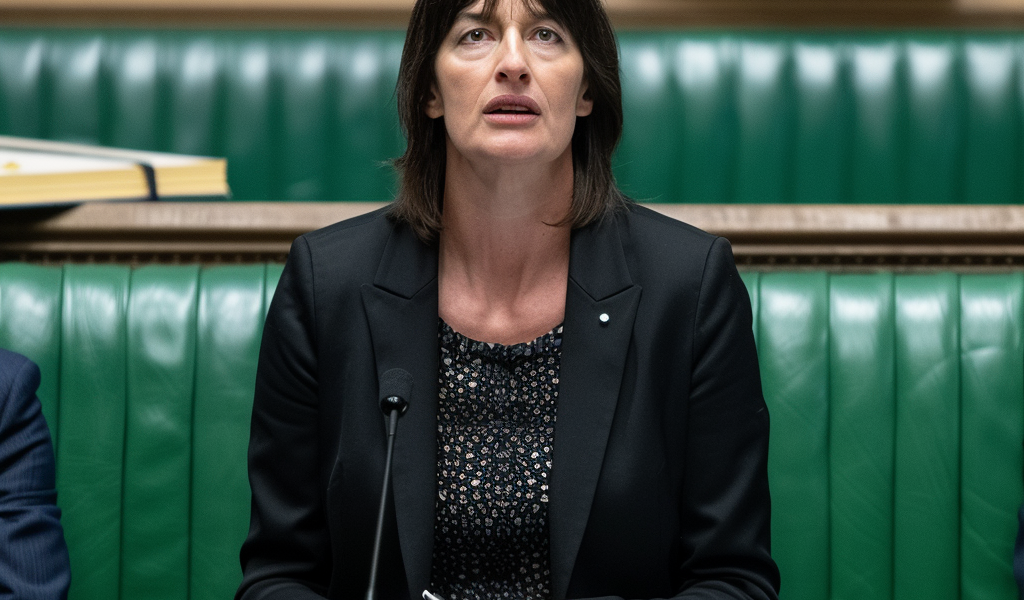The 2024 Autumn Budget, presented by Chancellor of the Exchequer Rachel Reeves on October 30, marks a significant moment in UK economic policy as it is the first budget delivered by a woman and the Labour Party’s first budget in over a decade. Following her statement in the House of Commons, the Office for Budget Responsibility (OBR) released updated forecasts for the UK’s economic and fiscal outlook, providing a clearer picture of the government’s plans for the coming years.
In her address, Chancellor Reeves outlined a strategy that involves increasing government spending by approximately 2% of GDP annually over the next five years. This increase is aimed at bolstering investments in critical areas such as transport, housing, and research and development (R&D). Notably, one-third of this additional spending will be allocated to investment initiatives, while the remaining two-thirds will support day-to-day government operations.
To finance this increase in spending, the Chancellor announced that half of the additional funds will come from tax increases, primarily through higher employer National Insurance contributions (NICs) and capital taxes. The other half will be addressed through additional borrowing, a strategy that aims to strike a balance between immediate fiscal needs and long-term economic stability.
Chancellor Reeves emphasized that the budget is designed to restore stability to public finances and rebuild essential public services, asserting that economic stability is a priority for her administration. The proposed tax changes are expected to have a significant impact on both businesses and individuals across the UK.
Key Tax Announcements
Employer National Insurance Contributions
One of the most significant changes announced is the increase in the employer NICs rate, which will rise from 13.8% to 15% starting in April 2025. Additionally, the threshold for employer NICs will be lowered from £9,100 to £5,000 per year. This adjustment means that a larger number of employers will be subject to the NICs charge, potentially impacting small and medium-sized enterprises the most. However, it is worth noting that some employers may experience relief through the employment allowance, which allows for a reduction in the total amount of National Insurance they owe annually.
Capital Taxes
In a move that is likely to affect investors, the Chancellor announced an increase in the main rates of capital gains tax, effective from October 30, 2024. Furthermore, the rates for Business Asset Disposal Relief (BADR) and Investors’ Relief (IR) will also see an increase starting in April 2025. This change is aimed at ensuring that those who benefit from capital investments contribute a fairer share to the public finances.
Investment in Public Services
The budget underscores a commitment to enhancing public services, with a significant portion of the increased spending allocated to areas that directly impact citizens’ lives. The focus on transport infrastructure is particularly pertinent, as the government seeks to modernize and expand the UK’s transport network, thereby improving connectivity and supporting economic growth.
In addition to transport, investments in housing are a top priority. The government aims to address the ongoing housing crisis by increasing the supply of affordable homes, which is essential for ensuring that all citizens have access to safe and secure housing. This initiative is expected to stimulate job creation in the construction sector and contribute to overall economic recovery.
Research and development also feature prominently in the budget, reflecting the government’s recognition of the importance of innovation in driving economic growth. By investing in R&D, the government aims to position the UK as a leader in emerging technologies and industries, which is crucial for maintaining competitiveness on the global stage.
Economic Outlook
The Chancellor’s announcements are set against a backdrop of evolving economic conditions in the UK. The OBR’s updated forecasts provide insight into the anticipated economic trajectory, factoring in the implications of the budgetary measures. The government is hopeful that the combination of increased public spending and strategic tax reforms will foster a more resilient economy.
As the Labour Party navigates the complexities of governance after over a decade in opposition, the 2024 Autumn Budget serves as a critical tool for shaping its economic narrative. The emphasis on stability and rebuilding public services resonates with the electorate, particularly in light of recent economic challenges.
In summary, the 2024 Autumn Budget represents a pivotal moment for the UK’s economic future, with significant implications for public spending, taxation, and investment in essential services. As the government moves forward with its plans, the impact of these measures will be closely monitored by economists, businesses, and citizens alike.





